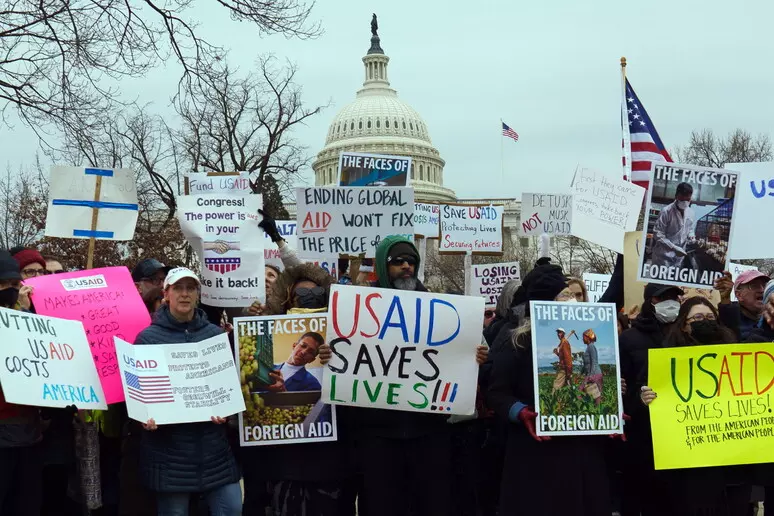They were engaged in rescue operations in a Myanmar devastated by one of the most violent earthquakes recorded since 1912, when three operators from the U.S. Agency for International Development (USAID) were dismissed.
The decision, made while the mission was still ongoing, left the officials without accommodation in Mandalay, forcing them to sleep on the streets alongside local residents, still terrified by possible aftershocks.
According to Marcia Wong, former Deputy Administrator of USAID’s Office of U.S. Foreign Disaster Assistance, the incident had a deeply demoralizing impact on the staff. Wong emphasized that the team had been working intensely to ensure the timely arrival of humanitarian aid and openly criticized the Trump administration’s decision to terminate contracts while operations were still underway.
The workers, Wong noted to Reuters, were informed of the termination only at the end of last week. Although their collaboration would officially end in a few months, the effects had an immediate impact: funding was cut, and contractors were laid off from various federal offices. The Department for Government Efficiency, strongly supported by billionaire Elon Musk, minimized USAID’s operations as part of a broader plan to eliminate “unnecessary spending.”
Meanwhile, six Democratic senators fiercely attacked the current administration, calling it a “humanitarian failure,” and denounced the delay and inadequacy of the U.S. response to the crisis. In the earthquake-stricken country, where over 3,300 lives were lost, China, Russia, and India promptly intervened.
From Brussels, Secretary of State Marco Rubio rejected the accusations, claiming that the delays were not due to the dismantling of the organization but to operational difficulties within a hostile environment like Myanmar. Rubio also stated that Myanmar’s military government deliberately obstructs U.S. efforts and reiterated that Washington no longer intends to bear the burden of global humanitarian interventions alone, urging other economic powers to do their part.
The United Nations has also confirmed that the military junta is imposing severe restrictions on the entry and distribution of aid in the country.
Founded in 1961, USAID is the primary tool of the U.S. government to provide assistance and development resources. Active in over 100 countries, it promotes initiatives in strategic areas such as poverty reduction, health, education, disaster response, and support for democracy.
Through civil missions, field projects, and partnerships with international and local organizations, USAID aims to build more stable, inclusive, and resilient societies. Its work is often decisive in emergencies: it provides immediate aid in cases of wars, famines, epidemics, and natural disasters.
However, in recent years, the agency has undergone significant cuts and restructuring, directly impacting its ability to act. Episodes like the one just highlighted raise questions about the future direction of American cooperation and the sustainability of an increasingly fragile presence in global humanitarian crisis theaters.












